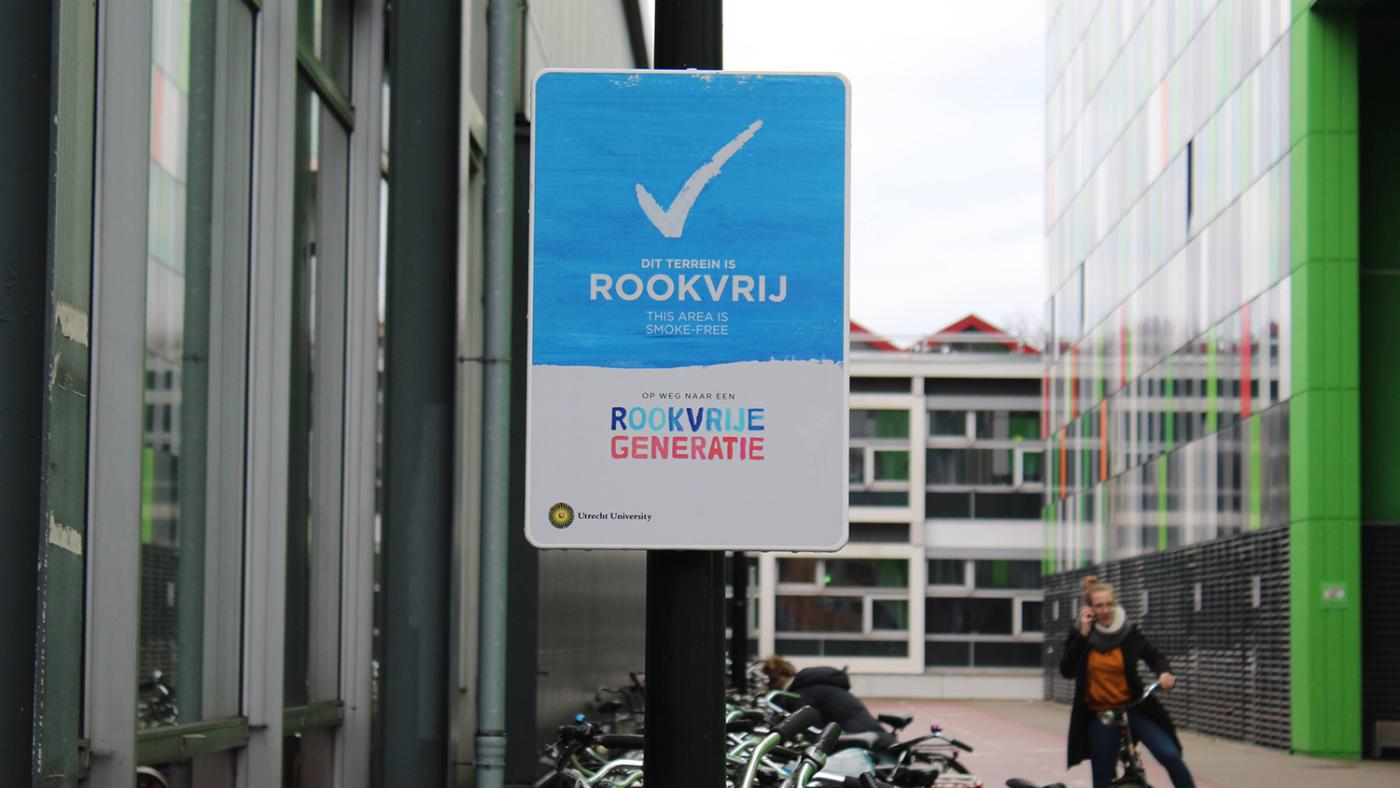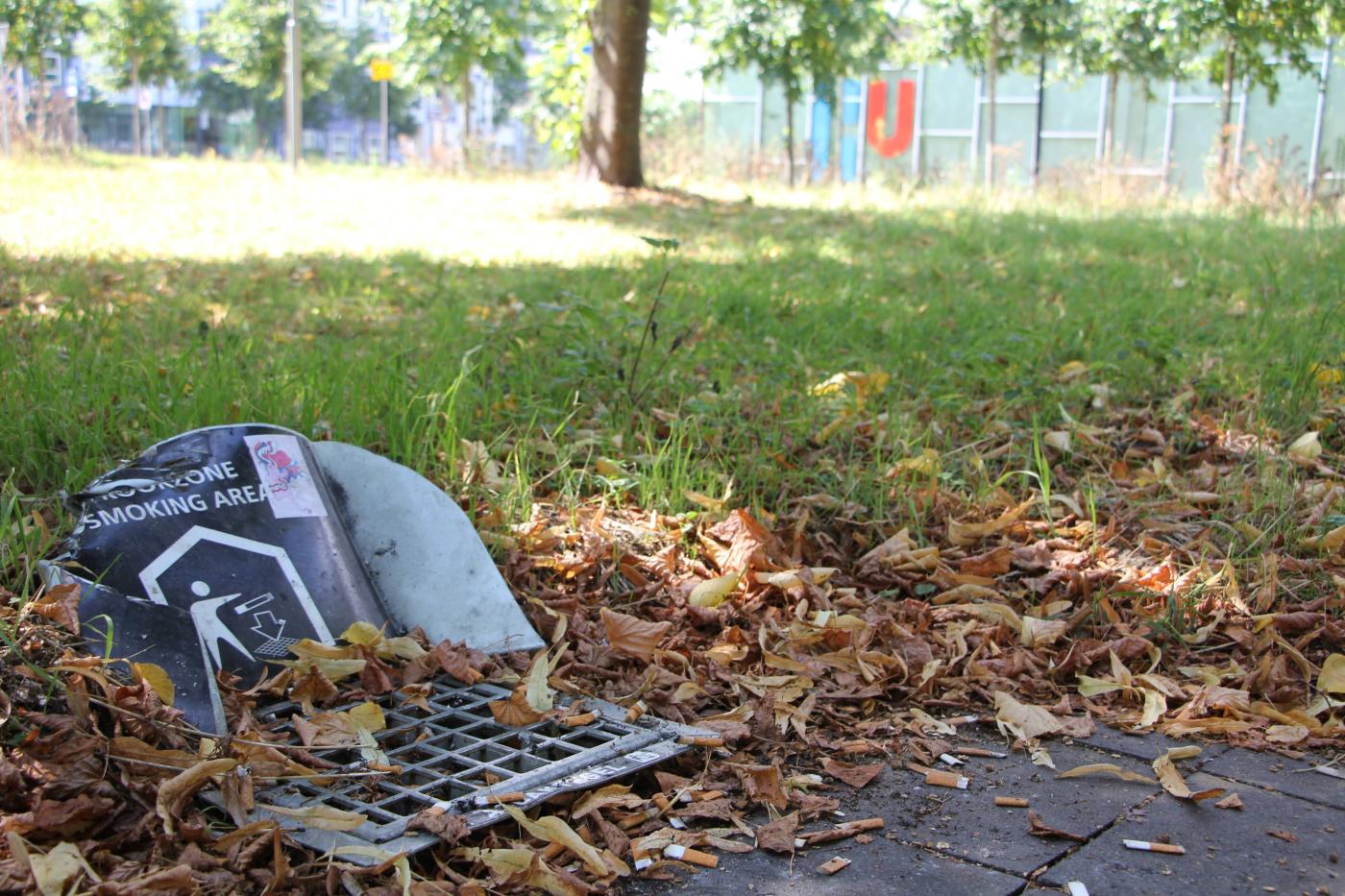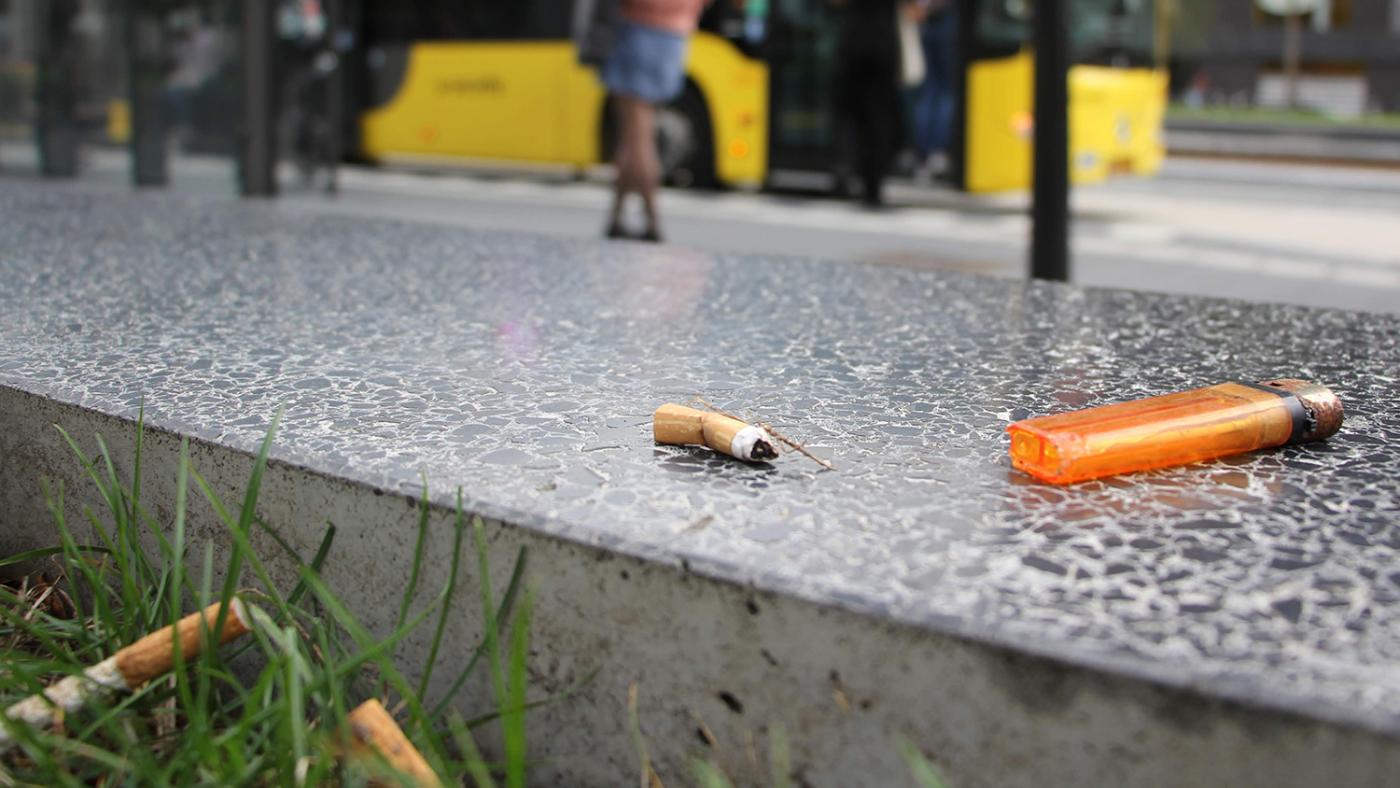UU finds smoking ban at USP unrealistic
University takes legal action against smoking ban fines

Since August 2020, smoking or vaping has been forbidden by law on educational grounds. The Dutch Food and Consumer Product Safety Authority (NVWA) has been enforcing this ban since January 2021. After warning UU once over the existence of two smoking areas, NVWA subsequently imposed two fines of 600 euros each and most recently a fine of 1,200 euros.
In addition to the two smoking areas on university grounds, UU was fined over a lack of enforcement officers when inspectors visited. They also encountered smokers on campus.
The university has objected to the fines twice, but NVWA rejected that. “We are now going to take legal action,” says Eddie Verzendaal, Director of Real Estate & Campus and the Facility Service Centre. “Although we fully support the law for smoke-free educational areas, it is almost impossible for us to enforce a smoking ban on our campus.”
The university wants to set up smoking areas on campus where smoking would be allowed. Verzendaal claims that smoking areas would make it easier for UU to comply with the smoking ban because enforcing the law is impossible on an area spanning over 367 hectares. That is the size of 525 football fields. It also includes meadows which are freely accessible to everyone. In addition, USP is intersected by roads where the smoking ban does not apply because they are considered public areas.

Smoking area on municipal land at Bolognalaan. Photo: DUB
Tolerance is not allowed
In the run-up to the law, the university took various measures to discourage smoking, such as turning Leuvenplein, at Utrecht Science Park, and the courtyard of the Drift buildings into smoke-free areas. Smoking was still allowed at that time, but only in a designated area. When the law to make educational areas smoke-free came into effect, those areas had to be removed.
Signs, paving stones and banners were installed with the text 'smoke-free generation' to let students, employees and visitors know that smoking is not permitted on campus. Smoking was not to be tolerated in any way. In addition, the university was expected to enforce the law by prohibiting smokers from smoking, but it does not have the authority to issue fines or penalties. NVWA fines go to the university.
Enforcement
Enforcing the law is not easy, says Verzendaal. Initially, invigilators were walking around “but they cannot do much if they are not allowed to impose fines or penalties.” During a meeting with the University Council, UU Vice-President Margot van der Starre stated that "these people have a dog's job because they are often verbally abused”. To properly enforce the law, 200 to 2,000 people would be needed to patrol the campus 24/7.
What makes enforcement even more complicated is the fact that not all land at USP is owned by the university. The area is intersected by tram tracks, roads, cycle paths and watercourses that belong to the province, municipality and water board. The smoking ban does not apply on public land.
When the ban came into effect, an agreement was reached with the other owners and other organizations at USP to jointly make the area smoke-free. In consultation with the municipality, they also decided to set up four smoking areas, so that smokers would still have the option to light up a cigarette. “These areas are necessary because people would stand on the tram track otherwise and smoke there. That is too dangerous,” argues Verzendaal.
Two smoking areas are located on municipal land (on the traffic island on Bolognalaan and near Olympos) and two on land owned by the university (one near the parking lot next to the Kruyt building and the second at the veterinary hospital from the Faculty of Veterinary Medicine). “After the first fine, we removed the smoking area from the parking space, but we kept the one at Veterinary Medicine, which is meant for pet owners visiting the hospital.”

Photo by DUB
Awareness
In addition to smoking areas on campus, the university wants to replace the signs and tiles saying "smoke-free generation" with signs and tiles saying "no smoking". In addition, a campaign was launched in October to make smokers aware of the environmental damage caused by carelessly discarded filters, says Marjon van der Kaa, from FSC. UU has hired the Peukenzee for this purpose, a company whose employees are students who collect all the butts at USP six times this academic year. They also approach smokers to alert them about the environmental damage. Cigarette buts pollute the groundwater due to the microplastics in the filter, as well as the tar, nicotine, lead and chromium that remain in it.
Peukenzee publishes a report after each campaign. In September, they picked up almost 2 kilos of butts from the ground, which amounts to about 9,500 pieces. They found them everywhere along Heidelberglaan-Padualaan, especially by the buildings and bicycle sheds. More than 14,000 butts were picked up in October. FSC also collects the butts itself between the pick-up actions organised by Peukenzee, so there are actually many more butts, says Van der Kaa. Students who smoke told Peukenzee employees that they would like to be provided with ashtrays as they have no intention of quitting.